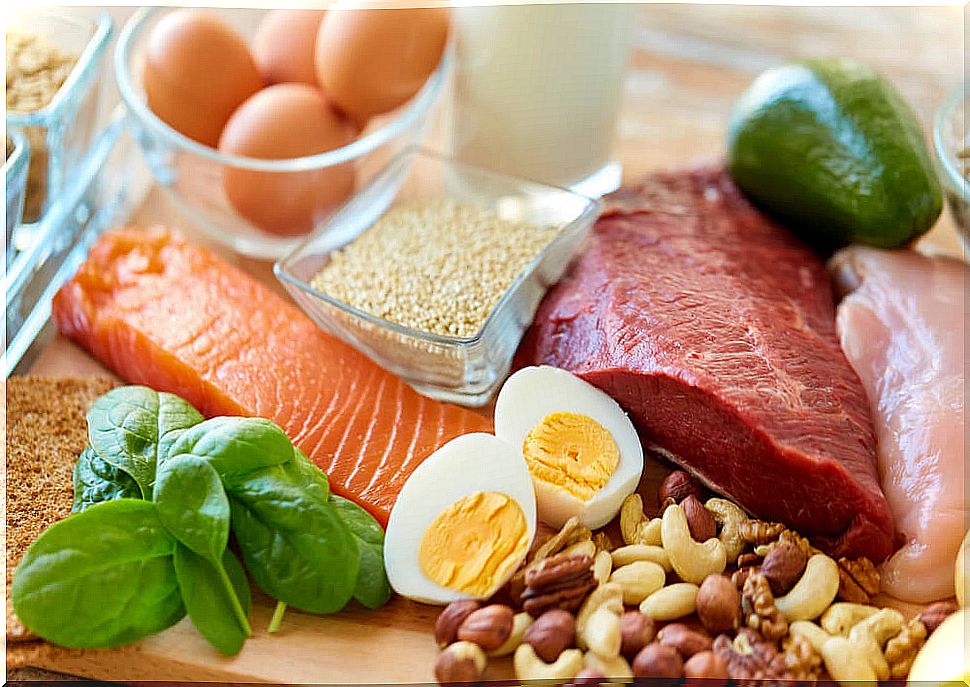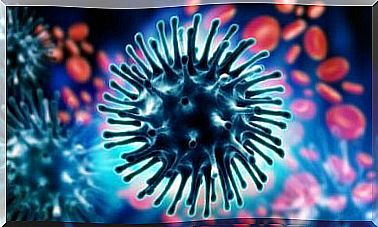Types Of Proteins And Their Functions
Do you know the different types of proteins? Protein is an essential macronutrient for humans. It must be present in the diet and is made up of smaller elements called amino acids.
Among all the amino acids that make up a protein we find the non-essential (capable of being synthesized by the body itself) and the essential (which must be ingested through food).
In this way, we can affirm that regular protein intake is essential for life. The most recent scientific articles assure that the consumption of this nutrient is capable of preventing the development of diseases such as sarcopenia. However, there are several types of proteins depending on their origin and their function.
Types of proteins: 2 possible sources
We can distinguish between proteins of animal origin and of plant origin. The former are characterized by being of higher quality than the latter. They are called proteins of high biological value, since they have in their composition the 9 essential amino acids for humans.
In addition, they have the property of having a high digestibility, which facilitates their absorption and their use at the service of human metabolism. The most perfect protein known to the animal world is egg protein.
However, there are other proteins such as milk or meat of very high quality. In fact, protein supplements are generally based on whey protein isolates that allow a high supply of this macronutrient. Its use is recommended especially in situations of intense exercise, according to research published in the journal Nutrients.

On the other hand, we have the vegetable protein that is normally incomplete. This means that it is deficient in at least one essential amino acid. Therefore, it is essential to combine different types of vegetable proteins to achieve a correct supply of amino acids.
However, and still managing to optimize this contribution, the digestibility of the vegetable protein is much lower. This means that its absorption and bioavailability is lower than that of protein from the animal world. In balanced diets it is recommended that at least 50% of the protein intake comes from animal protein.
Protein functions
Protein is a macronutrient that has various functions within the body. One of the main ones, and for what they are best known, is for their structural capacity when it comes to building and repairing bones, muscles and other tissues. However, its functions go much further:
- They work as antibodies to defend us from foreign organisms.
- They are enzymes that accelerate or allow the physiological reactions that occur in the body.
- They allow the internal pH balance through a buffer system.
- They have functions in muscle contraction.
- It confers elasticity and resistance to the organs and tissues.
- They are involved in the proper functioning of the nervous system.
- They can be an energy reservoir.
- They carry oxygen through the blood.
Therefore, it is clear that proteins can perform enzymatic, structural, defensive, storage, transporter, receptor and motor functions.
Essential macronutrient
For all these reasons, proteins are an essential macronutrient for human nutrition. Despite this, the protein load in the current diet tends to be higher than recommended.
While the bibliography recommends doses of between 1.2 and 1.6 g of protein per kg of body weight for sedentary people, values of around 2 g are being reached.
These values may make sense for strength or high intensity athletes. This is stated by a study carried out in 2015. However, in sedentary adults they could pose too great a stress to the liver and kidneys, and it does not offer many advantages at the level of body composition.

Thus, it is recommended to slightly reduce protein consumption, except in cases of special needs. The combination of animal proteins with vegetables is usually a success in the diet. It is interesting to choose foods from the plant kingdom with a high protein content, such as nuts.
Another interesting option is legumes, but in this case it is recommended to combine them with cereals to correct the supply of essential amino acids.
Include protein in the diet of different types
Protein, along with fats, are the macronutrients with the most functions in the body. For this reason, the contribution is essential within the framework of a varied diet. Despite this, today’s society tends to over-intake protein, especially from the sale of protein supplements. Before consuming this type of supplement, it is interesting to consult the nutritionist to assess whether it is necessary or not.
In any case, the diet of a sedentary person should be marked by measure and variety. Reducing the consumption of meat and increasing that of fish, as well as introducing proteins from the plant world, are very healthy habits.









